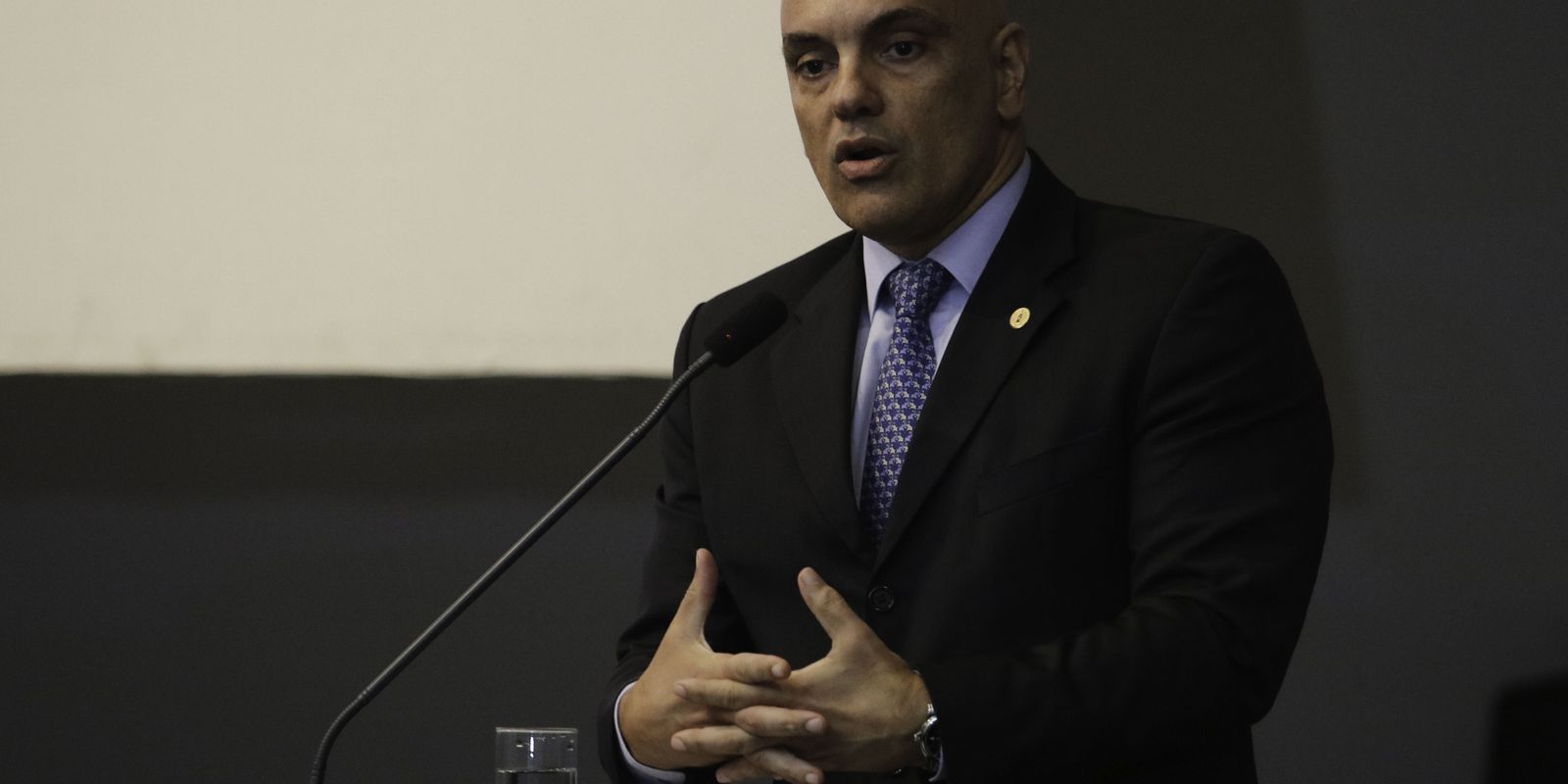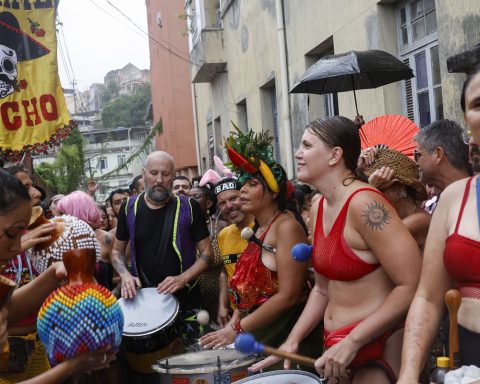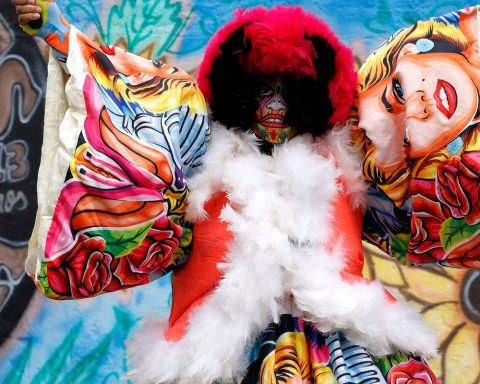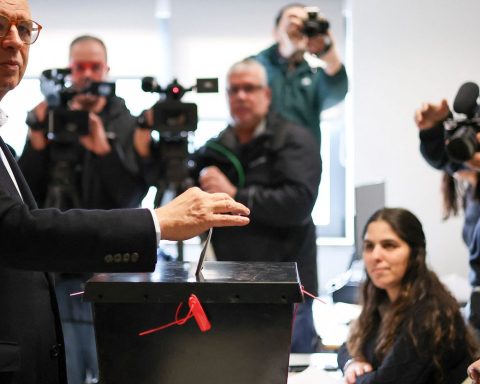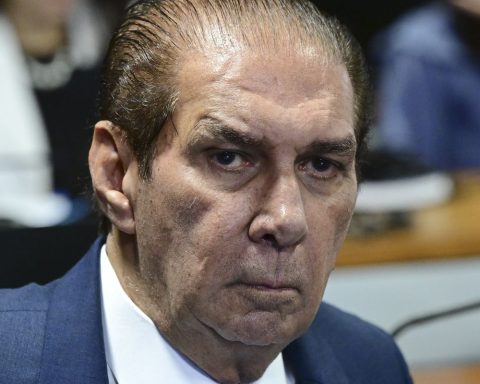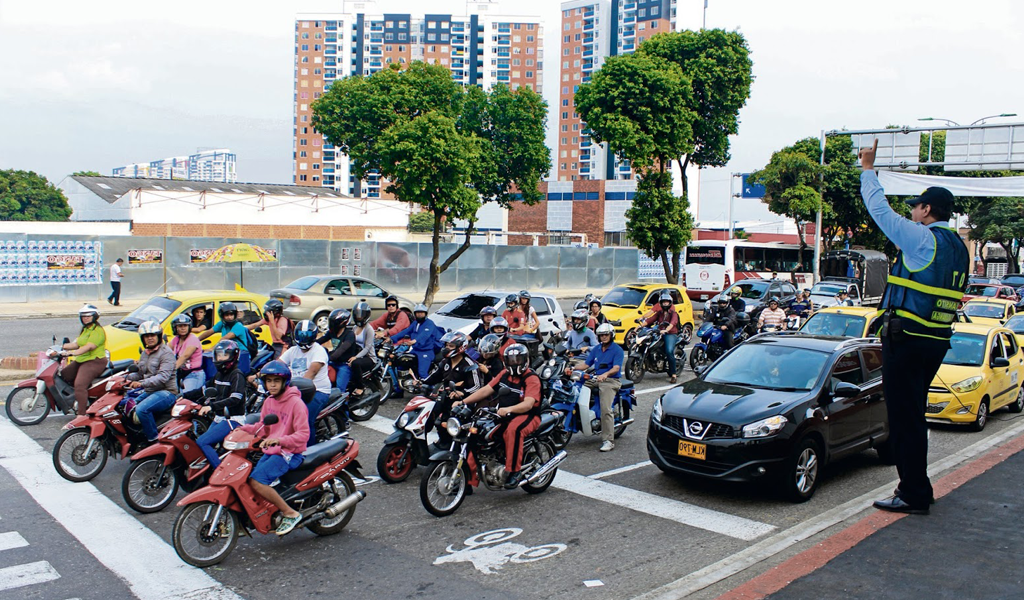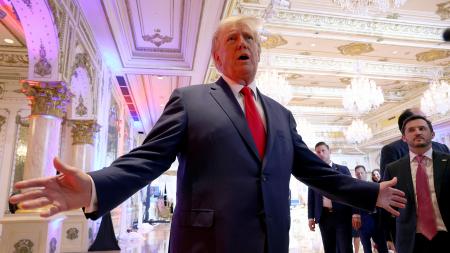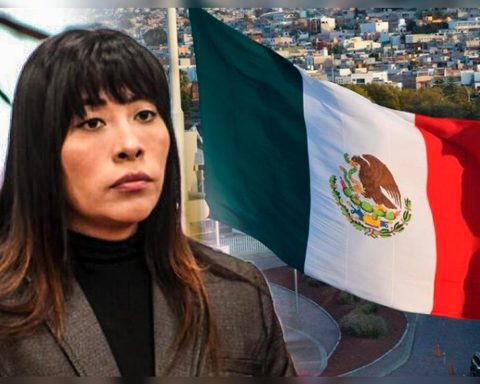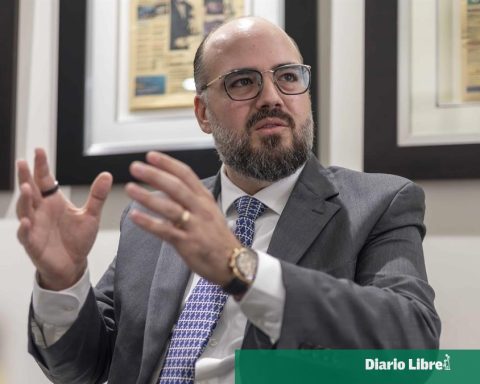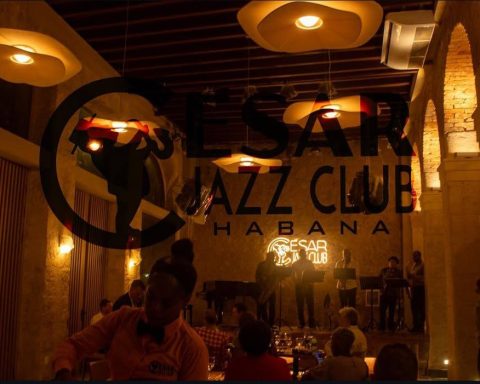The President of the Superior Electoral Court (TSE) and Minister of the Federal Supreme Court (STF), Alexandre de Moraes, criticized this Monday (14th), in New York, in the United States, the so-called digital militias, which, according to him, “act to erode democracy”. The magistrate and five other STF ministers – Luís Roberto Barroso, Gilmar Mendes, Cármen Lúcia, Ricardo Lewandowski and Dias Toffoli – participate in the private event Lide Brazil Conference, promoted by the Brazilian group Líderes Empresariais.
This is the first edition of the conference, which aims to discuss issues such as the economy, democracy and freedom in Brazil starting next year. In his speech, Moraes demanded that the Legislative Power regulate digital platforms as a way to combat misinformation. For him, deputies and senators will have, together with the Judiciary, to combat the spread of false news. “It is not possible for social networks to be no man’s land. It is not possible that the digital militias can attack with impunity without accountability”, he stressed.
The minister recognized that the lack of regulation is a worldwide problem, but said that the problem has been aggravated by the digital militias that “use the false cloak of unlimited freedom of expression” to “erode democracy”, “erode freedom in its three pillars” and attacking “the electoral system that is the basis of democracy”.
Alexandre de Moraes insisted that attacks on electronic voting machines and judicial authorities who conduct the electoral process directly affect democracy. In defending the transparency, reliability of electronic ballot boxes and speed in counting, Moraes assessed that, regardless of the use of printed votes, electronic ballot boxes or mailed votes, what matters to some “is to discredit the democratic instrument that is voting ”.
“What we intend to replace are not the electronic ballot boxes, we intend to replace the political system that has free, periodic voting for all voters. This construction of digital militias, of attacks without responsibility, of confusion about what freedom of expression is, does not only attack freedom of the press, it does not only attack the electoral system. It also attacks the Judiciary throughout the world. It is for no other reason that the main client of these digital militias is the Judiciary”, he added.
To the lecturers in New York, the president of the TSE also said that “democracy was attacked, democracy was disrespected, democracy was suggested, but democracy survived”. The minister attributed the situation to the fact that Brazil has strong institutions and an autonomous Judiciary, which respect the Constitution. “Our flag is not A, B, or C. Our flag is the Constitution, our flag is the defense of the Rule of Law, the Democratic State of Law, and so it will be”, said Moraes.
Along the same lines as Alexandre de Moraes, other ministers such as Gilmar Mendes and Dias Toffoli defended the electoral process in Brazil and democracy. “The political environment immediately recognized the result of the elections. Protests and demonstrations of nonconformity are normal. Aggression does not find shelter in the Constitution, much less the defense of the dictatorship. This is regrettable”, said Gilmar Mendes.
Toffoli, on the other hand, criticized the fact that “self-proclaimed conservatives” closed roads after the announcement of the election results in the country, interrupting people’s right to come and go. “We cannot let hatred enter our country”, he said. The minister recalled the attack on the Capitol, in the United States, after the election of Joe Biden to the Presidency of the country. the “factual truth”.
The first day of the event in New York also brought together former President of the Republic Michel Temer, former Minister and former President of the STF Carlos Ayres Britto, and Minister of the Federal Audit Court (TCU) Antonio Anastasia.
protests
Images circulating on social media show STF ministers being harassed on the streets of New York by Brazilian demonstrators, many of them wearing yellow-green T-shirts. The group disputes the result of the elections in Brazil. Luís Roberto Barroso, Gilmar Mendes and Alexandre de Moraes are among the judges who were the target of the protests.
